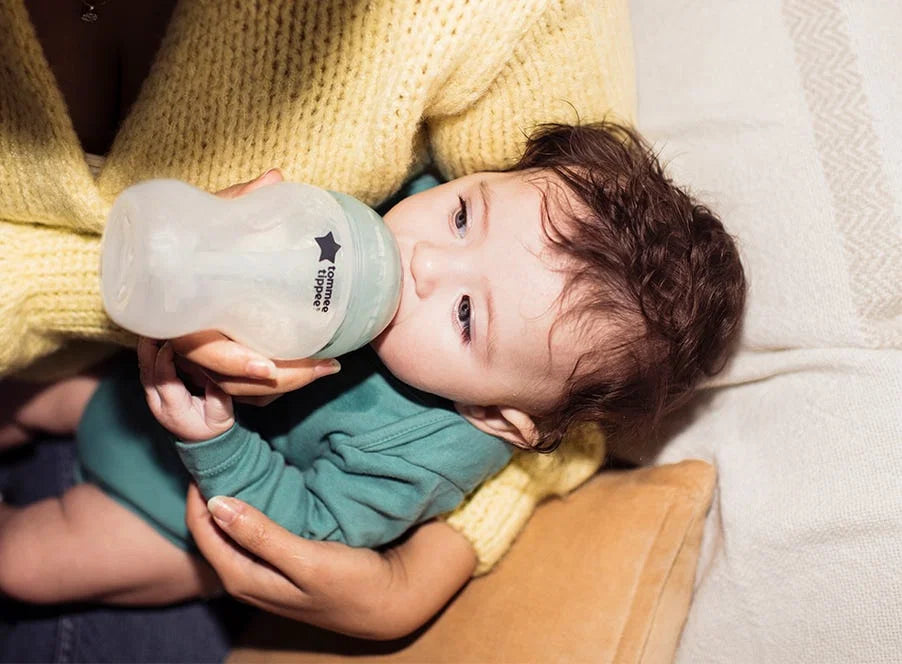Baby Care
جميع مواضيع المقالات
When Does Colic Peak?

-
مقال بقلم Rob
-
نُشر في 2023-12-13
-
وقت القراءة 4 دقائق
It’s no fun for anyone if your baby has colic. Constant crying can be frustrating and distressing, leaving you unable to relax and wondering what you can do to calm your baby.
Colic is a common problem that affects about 20% of infants under 12 months of age and occurs equally whether a baby is breastfed or bottle-fed.
The most common signs and symptoms of colic include:
- intense and prolonged crying
- baby becoming red and flushed in the face when they cry
- baby clenching their fists or arching their back while crying
This guide has been written with the help of award-winning and practising midwife Louise Broadbridge to help explain when colic typically starts, peaks, and ends, and to provide reassurance with a rough timeline and some top tips to help you through.
"The first and most important thing to remember is that you are still a lovely, amazing parent. You haven’t done anything wrong, and it is not your fault that your baby has colic.
Just like the common cold, you are expected to live through colic, but there are several things you can try at home to improve your baby’s colic symptoms. The key is to find what works for you. Parenting isn’t easy. Look after yourself as well as your baby and, with calm perseverance, colic will get better with time.”
When does colic start?
Colic can start when a baby is just a few weeks old, typically around two to five weeks of age. But it's important to note that not all babies experience colic and it's normal for babies to cry and fuss for various reasons in the first three months of life.
Sometimes other things are mistaken for colic, such as the developmental PURPLE crying period short for...
- Peak of crying
- Unexpected
- Resists soothing
- Pain-like face
- Long-lasting
- Evening
When does colic peak?
A baby's colic symptoms are typically at their worst when they're around six to eight weeks old and can last for up to three or four months. Although they can peak at different times of day for different babies, colic symptoms are mostly experienced in the late afternoon and evening.
When does colic end?
Many parents wonder when colic will end, and the answer is that it can vary from baby to baby. Some babies may experience colic for just a few weeks, while others may continue to have symptoms for several months. However, in most cases, colic will resolve on its own by the time a baby is five or six months old.
Can colic start later than three months?
Colic is typically seen in very young babies and is not commonly seen after three months, but you should always talk to your GP if you're worried about how much your baby is crying after three or four months and if the symptoms they have are similar to colic.


